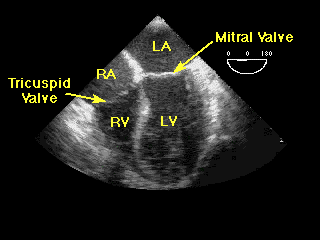Ken Suggests Echocardiogram Alternatives For Valve Disease Diagnosis
By Adam Pick on December 10, 2008
As you may know, many patients and caregivers stress the importance of getting a second opinion prior to surgery. Without a doubt, second opinions are a critical step for validating or challenging a primary diagnosis of valvular diseases including mitral regurgitation and aortic stenosis.
Today, I received an email from Ken that stressed a very interesting element of his own, second opinion. As you can read below, Ken’s surgeon performed some additional tests which led Ken to question whether-or-not echocardiograms are the most effective test for detecting valvular disease. Here is what Ken writes:
Dear Adam,
I almost was going under the knife for aortic valve replacement (AVR) until my doctor friend found an inconsistency in the cardiologist’s report. The surgeon then requested a CAT Angiogram.
Apparently, for athletic patients, echocardiogram readings are not that great. Needless to say, the CAT showed a SIGNIFICANT DIFFERENCE in my aortic root dilation.

According to this new test… SURGERY IS NOT NEEDED AT THIS TIME!!! Please suggest to your readers that a CAT or MRI might offer additional information for proper diagnosis.
At times, as in my case, echocardiograms may not be the most reliable test for valve disease diagnosis.
Thanks for your ear, your blog and your heart valve surgery book!
Ken
|
Bill Scaglione says on December 11th, 2008 at 4:13 pm |
|
this stuff is too risky to guess at. The echo is the starting point and not clear enough for my taste. A TEE would be next step I would elect before settling on a diagnosis. A catherization via the groin would be the final step prior to any surgery to help the surgeon determine what he or she will be dealing with. Any test older than 3-6 months would require a re-take by many surgeons. |
 |
|
Gail says on December 11th, 2008 at 4:44 pm |
|
We had a similar issue. When we went for pre-op testing, our regular cardiologist was on vacation and the one we saw said there was no significant change on the echo. My husband then started to argue he didn’t need the valve replacement at that time. After much discussion they decided to do the MRI and those results would determine if surgery would be done that week. The MRI showed it was needed. He was done 2 days later with excellent results. |
 |
|
Mary says on December 16th, 2008 at 5:15 pm |
|
On 10/27/08 I had my mitral valve repaired. One part of my pre-op testing, after the TEE showed severe regurgitation, was a CT Angiogram with contrast dye. I was told it was done so that I could avoid the groin incission and cardiac catherization while still being certain that I did not need any of my coronary arteries by-passed while they had me open. |
 |












